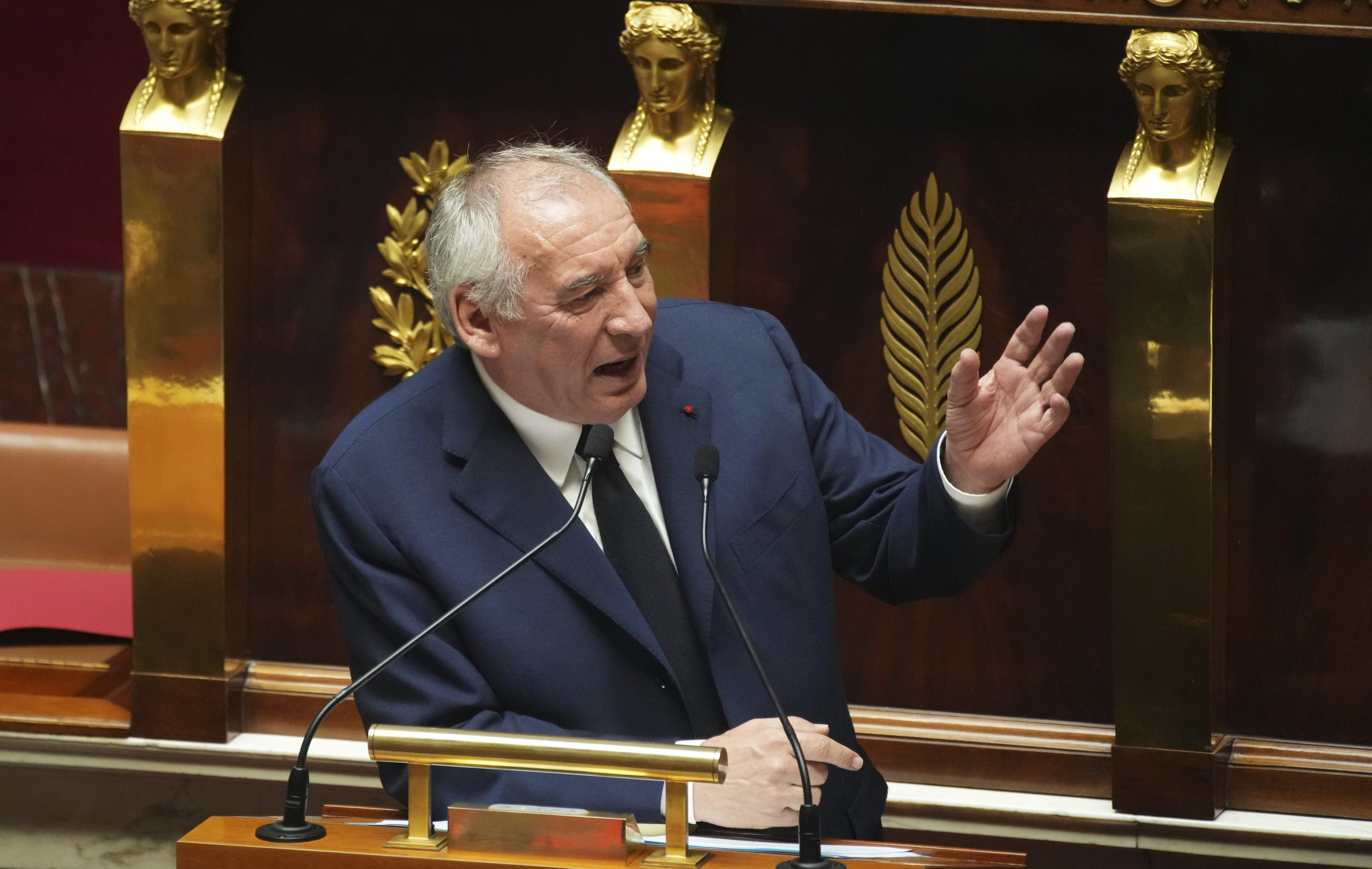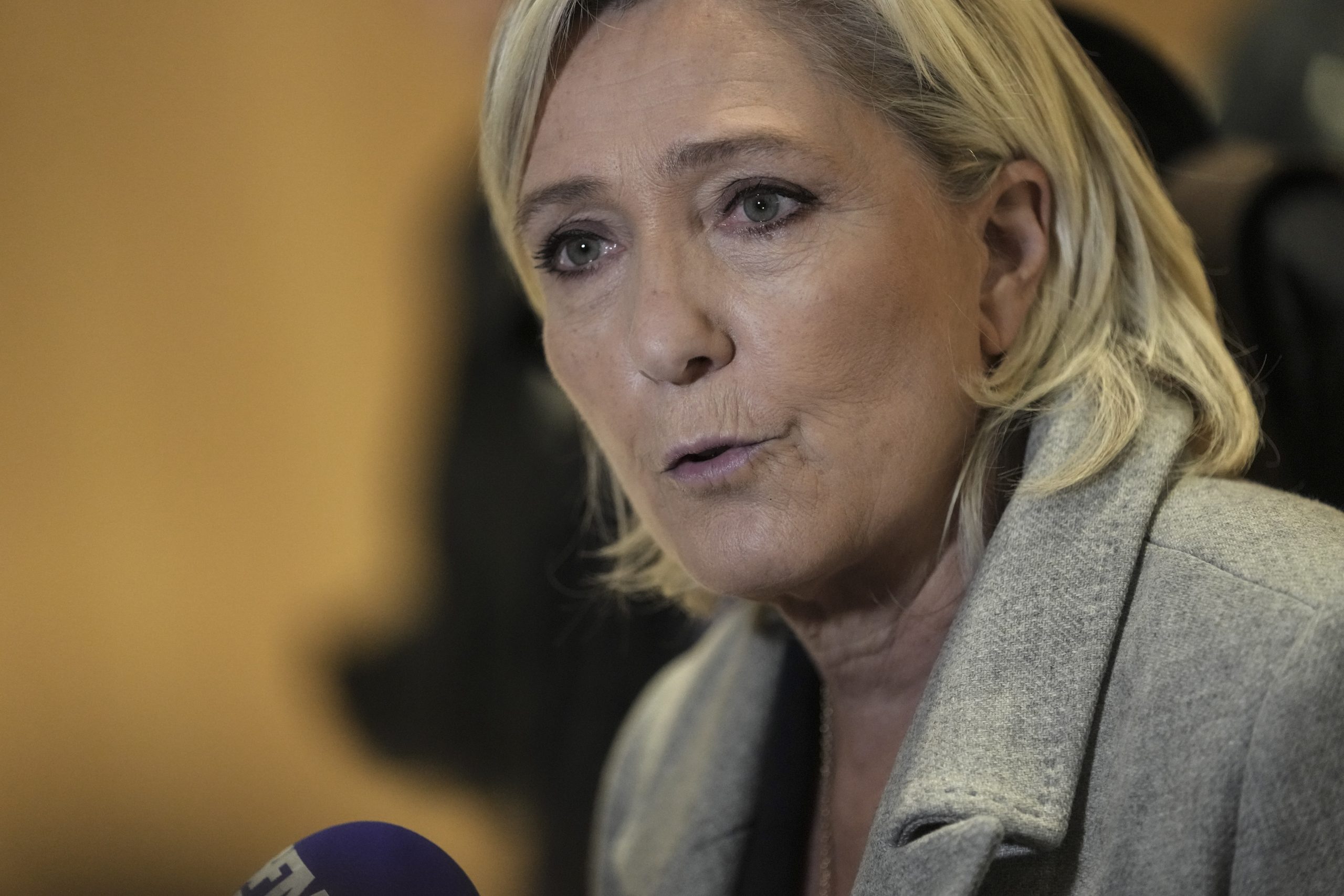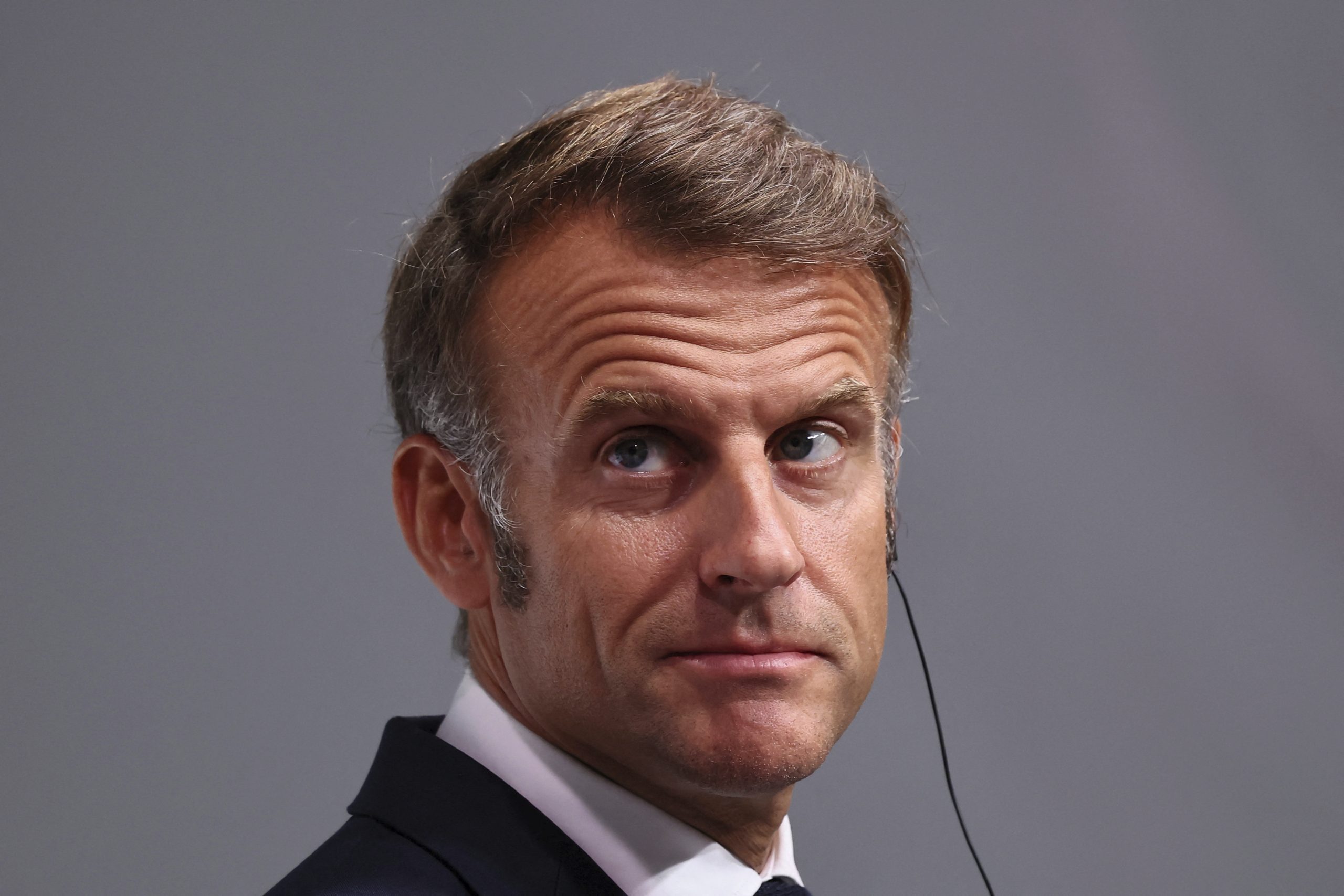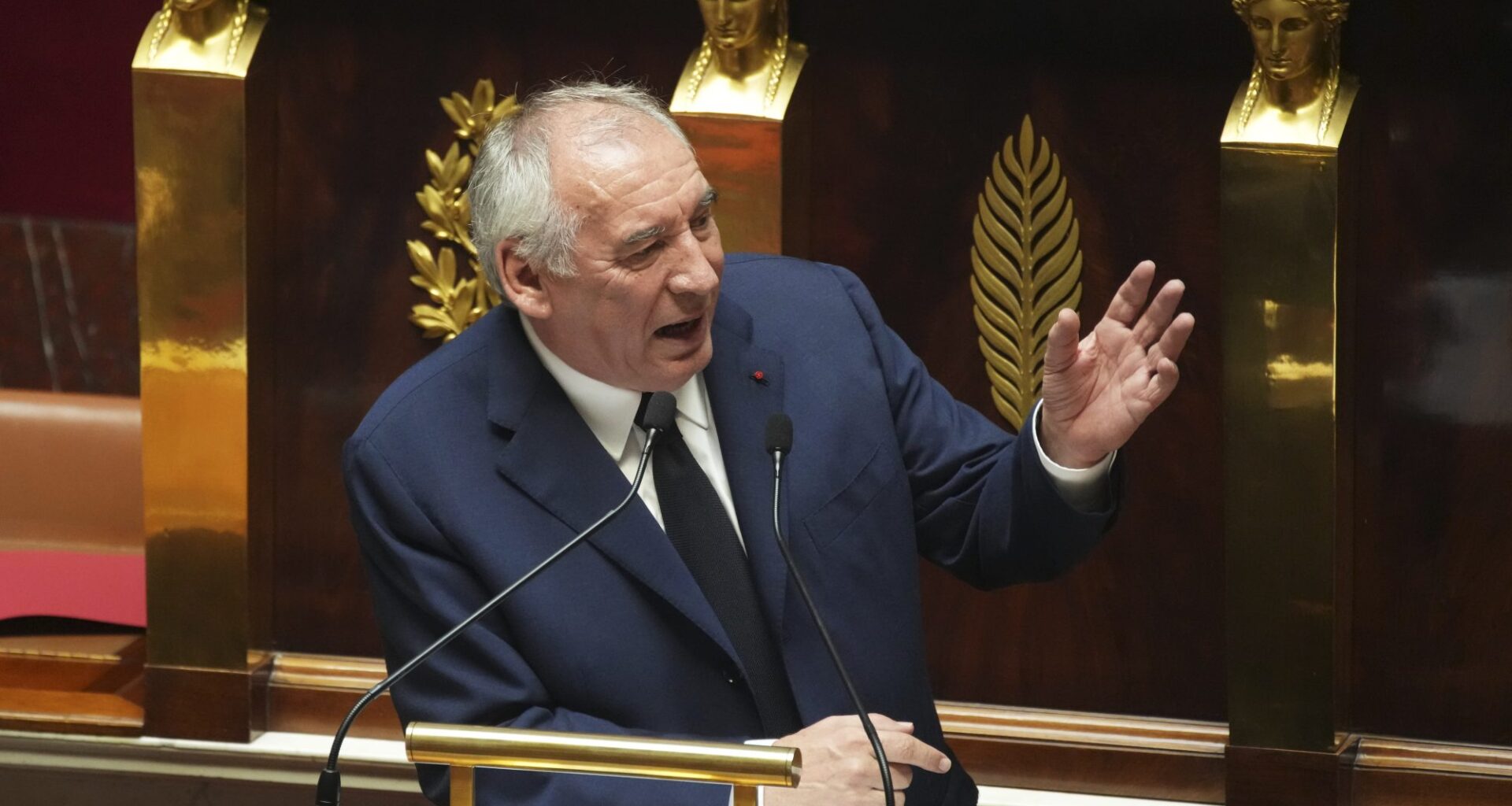The French government has collapsed after yet another vote of no confidence by MPs in the Assemblée Nationale.
Prime Minister François Bayrou is expected to hand his resignation to President Macron tomorrow morning, although he may be asked to stay on until a replacement can be found.
And that will be no easy task, thanks to a parliament that is split three-ways between Macron’s supporters, the far right and the hard left, each completely at odds with the others.
 Prime Minister Francois Bayrou addresses the Assemblée Nationale, prior to the parliamentary confidence vote. Image credit: AP
Prime Minister Francois Bayrou addresses the Assemblée Nationale, prior to the parliamentary confidence vote. Image credit: AP
How has France got into such a state?
After Marine Le Pen’s far right party, National Rally, came first in the 2024 European elections, Macron decided to call their bluff and trigger a national parliamentary election, held just a few weeks later.
It was a decision that was to spectacularly back fire.
Not only did National Rally massively increase its number of seats in the Assemblée Nationale, but many of those opposed to the far right voted, not for Macron, but for the opposite extreme – a new hard left block called the New Popular Front (NPF).
To the fury of right and left, Macron has shunned both extremes.
 Marine Le Pen, leader of far-right party National Rally. Image credit: AP
Marine Le Pen, leader of far-right party National Rally. Image credit: AP
Instead he has put in place prime ministers from his own camp, tasking them with the impossible job of steering a minority government through the storm.
Macron’s protegé, Gabriel Attal; former Brexit negotiator, Michel Barnier; and François Bayrou have each only lasted a matter of months in the job.
Each of them has failed, plunging France – a major European country, EU member and Eurozone bastion – into new political and economic uncertainty.
Because what finally brought down Barnier, and has now felled Bayrou, is France’s spiralling debt.
France’s debt crisis
Last year, the European Commission put France in the naughty corner, forecasting France was heading for a government deficit of 6.2% of GDP, more than double the recommended level for Eurozone countries.
France is now subjected to an EU ‘Excessive Deficit Procedure’, by which it is supposed to “return to discipline[d]” budgeting.
And yet, so far it has failed to do so.
“Today is not a political question, it is a historical question. Political questions are those that concern parties, rivalries between one another and questions of power. Historical questions are those that concern peoples and nations.”
– François Bayrou
Government debt in France is running at around €3.35 trillion and rising.
The OECD has warned that debt could reach 116% of GDP by the end of this year.
Only Greece and Italy are more indebted European countries.
Debt has been exacerbated by the covid crisis and impact on energy prices triggered by the war in Ukraine. But France also has systemic problems trying to finance its generous social state.
“France has not had a balanced budget for 51 years,” Bayrou told MPs.
“Every year, we spend more than our annual resources, and often much more,” he said.
The OECD warned in June that raising taxes would not be enough. France needs to make deep rooted structural reforms.
Meanwhile, as anyone who has been in debt knows, the bigger the debt, the harder it is to pay it back.
And that’s a worry for economic stability, not only for France, but for the entire Eurozone.
Borrowing costs have soared. Interest repayments are estimated at an eye watering €67 billion for this year.
Bayrou’s solution was to try to slash spending, raise taxes and drop two public holidays from the calendar to save money.
Like Barnier, he tried to convince MPs to support him in the national interest.
“Today is not a political question, it is a historical question. Political questions are those that concern parties, rivalries between one another and questions of power. Historical questions are those that concern peoples and nations,” he said in the Assemblée Nationale this afternoon.
 President Macron faces the difficult talk of choosing a new PM who will be able to placate the opposition and pass a budget. Image credit: AP
President Macron faces the difficult talk of choosing a new PM who will be able to placate the opposition and pass a budget. Image credit: AP
His pleas went unheeded and now another government lies in tatters.
It’s hard to see how Macron will find a new PM who will be able to placate the opposition and pass a budget. Until he does, there is stalemate.
One way out could be for Macron to call another election.
But the polls are not encouraging for him, with both the far right and far left riding high.
It seems unlikely President Macron will make that mistake again.
Watch more:
French PM looks set to lose confidence vote
French voters must choose between ‘Bardella and traditional right’, says political commentator
France’s fourth PM in a year: what challenges lie ahead?
